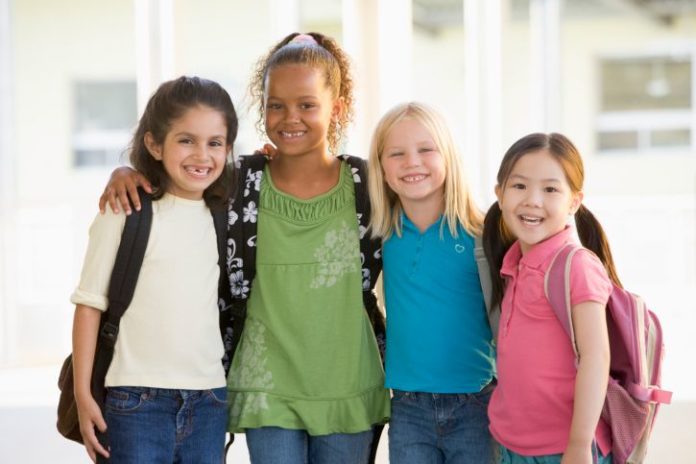At-risk children are more likely to successfully transition to secondary school if they take part in support programs during upper primary, a new study by ECU researchers has found.
The project, entitled Happy Kids, was conducted by ECU researcher Professor Gary Partington in conjunction with the WA Department of Education and WA Department of Health and funded by the National Health and Medical Research Council.
Trialled in nine schools across regional and metropolitan WA over a five-year period, Happy Kids used focus groups to help students connect with each other during the transition period from late primary to early secondary school.
At risk students, of both Indigenous and non-Indigenous backgrounds, were chosen for the focus groups, which met regularly during school time. The students set individual and group goals to achieve during the year.
A typical group goal was to complete a project that benefitted the school, such as a mural or garden feature.
Focus groups were led by a school coordinator with role models, such as the head boy or girl, participating as group members.
Professor Partington said participating students showed a substantial increase in social and emotional wellbeing.
“Many of the participating students come from troubled backgrounds which could negatively impact their education,” Professor Partington said.
“Findings show that students who were able to connect with each other through the Happy Kids program came out the other end as happier, more confident students.”
Other findings included:
- Improved student attendance at all primary schools;
- Improved student transition to secondary school in the metropolitan areas; and
- Positive long-term impact on the social and emotional well being of students at the local metropolitan secondary schools.
The focus groups were supplemented with an expo day, held at the school and open to all students in years 4 -7. The one-day program of activities promoted healthy living and highlighted the importance of avoiding drugs and alcohol.
Participation in leisure and activity clubs for all students in years 4 to 7 students also formed part of the program.
Happy Kids co-founder and coordinator Narell Black believes the program should become an essential part of the school curriculum.
“This program is now embedded in the curriculum of the participating schools and I could not imagine teaching without it. The ECU research backs up all the anecdotal evidence over the last thirteen years, proving that schools can and do make a difference,” Ms Black said.
Jarryd Price was a student at Mirrabooka Primary School. He found he was unable to participate in new activities and engage with his classmates due to his lack of confidence.
He took part in the Happy Kids program, which he credits for changing his life. He is now part of a successful band, which this year made the finals of Australia’s Got Talent.
“In my younger years I was very reluctant to put myself out there with unfamiliar people, in unfamiliar situations,” Jarryd said.
“Happy Kids helped provide the catalyst I needed and gave me the courage to take chances and have a go at new things and I haven’t looked back.”
Mirrabooka Primary Principal Chris Brackenreg agreed.
“We have been very fortunate to have Happy Kids at Mirrabooka and students such as Jarryd have benefited greatly from being involved,” Mr Brackenreg said.
“Students who participated in the program have created a special garden area, which sees a new mosaic tile added each year by the participants of the program. All students who take part in Happy Kids have shown dramatic improvements, particularly in their attendance and social interaction skills.”
“Happy Kids is a quintessential element of the Schools in this district and we are really proud to be involved.”
Source: Edith Cowan University











